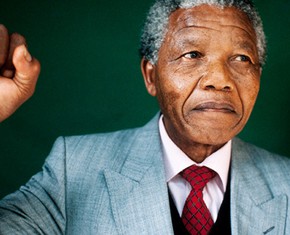The views expressed in our content reflect individual perspectives and do not represent the authoritative views of the Baha'i Faith.
Entire societies around the world, and even their political leaders, seem to have recently misplaced one of the most important human virtues: courtesy.
Dictionaries define the word “courteous” this way:
courˑteˑous: adj. polite and gracious; respectful or considerate in manner; marked by respect for and consideration of others.
Just think about it for a minute – when was the last time you encountered any real courtesy?
As you try to remember, you can leave out the standard business practice of courteous customer service, which employers try to train their employees to give for the obvious sales-related reasons. Real courtesy – the kind you experience when you realize that another person, whether someone you know or someone you don’t, recognizes your common humanity, acts politely and considerately toward you, and evinces a modicum of respect – has become increasingly rare.
In fact, our global culture, with some notable exceptions in a few places, has descended into a welter of anything-but-courteous behavior. Keyboard warriors slam each other viciously on Facebook; rude insults fly across the aisle in government chambers; backbiting, gossip and slander dominate many forms of media; political polarization separates us from one another and even engenders hatred; rudeness rises as the culture wars make enemies out of people who’ve never even met; and no one seems immune from the nasty onslaught.
Even when we try to speak and act courteously, we often get nothing but disdain, vitriol and disrespect in return. When that happens, people get mad, so it tends to become a vicious cycle, with courtesy displaced by vulgarity, incivility and then the exact opposite of courtesy: barbarity.
So how can we invite some courtesy back into our culture?
The Baha’i teachings have a recommendation – actually, much more than a recommendation. Baha’u’llah, the prophet and founder of the Baha’i Faith, described courtesy as “a binding command:”
O people of God! I admonish you to observe courtesy, for above all else it is the prince of virtues. Well is it with him who is illumined with the light of courtesy and is attired with the vesture of uprightness. Whoso is endued with courtesy hath indeed attained a sublime station. It is hoped that this Wronged One and everyone else may be enabled to acquire it, hold fast unto it, observe it, and fix our gaze upon it. This is a binding command which hath streamed forth from the Pen of the Most Great Name. – Baha’u’llah, Tablets of Baha’u’llah, p. 88.
Did you notice the way Baha’u’llah, “the Pen of the Most Great Name,” wrote about courtesy in this striking passage? He expressed the hope that everyone – even including himself (“this Wronged One,” since he composed this tablet in 1891 while a prisoner of the Ottoman government) – would acquire courtesy. What a remarkable thought, that a prophet of God, an exalted soul, would himself wish for that virtue!
Of course, Baha’is understand that all the prophets and divine messengers, including the great founders of the world’s Faiths like Buddha, Krishna, Moses, Jesus Christ and Muhammad, led blameless, perfectly spiritual lives. When a prophet makes this kind of surprising statement, we understand that it fits into the category of self-abnegation and humility. But still – to hear that a messenger of God desires courtesy for himself must mean that he holds it quite high in the pantheon of human attributes:
We, verily, have chosen courtesy, and made it the true mark of such as are nigh unto [God]. Courtesy, is, in truth, a raiment which fitteth all men, whether young or old. Well is it with him that adorneth his temple therewith, and woe unto him who is deprived of this great bounty. – Baha’u’llah, Epistle to the Son of the Wolf, p. 50.
Simple human courtesy befits everyone, so Baha’u’llah’s command of courteousness establishes the basic level of acceptable of behavior toward others. Certainly, the prophets of God exhort all of us in their spiritual teachings to love each other:
By the righteousness of the Lord! Ye were created to show love one to another and not perversity and rancour. Take pride not in love for yourselves but in love for your fellow-creatures. – Baha’u’llah, Tablets of Baha’u’llah, p. 138.
But if we somehow can’t manage to “show love one to another,” Baha’u’llah seems to say, at the very least we can be courteous:
Let truthfulness and courtesy be your adorning. Suffer not yourselves to be deprived of the robe of forbearance and justice, that the sweet savors of holiness may be wafted from your hearts upon all created things. – Baha’u’llah, Gleanings from the Writings of Baha’u’llah, p. 304.
What can we do, then, to develop this human virtue of courtesy when we encounter its opposite? Just about every day in this discourteous world, both real and virtual, we run into someone or something that shows disrespect, rudeness and a lack of consideration. When that happens, how do the Baha’i teachings suggest we react?
Abdu’l-Baha, the son of Baha’u’llah and the leader of the Baha’i Faith after his father’s passing, exemplified what living a Baha’i life could potentially become. Infinitely kind, considerate and courteous to everyone he met, he became known around the world, not only for his outspoken advocacy of the Baha’i principles of peace, justice and human harmony, but for exemplifying those principles in the way he lived his everyday life. In 1914, knowing that World War I could soon cut off his communication with the Baha’is of the world, Abdu’l-Baha gave this powerful advice to the Baha’is of America:
Know all mankind of all nations, sects and tribes as your kith and kin. Consider not their deeds, but only God. Seek your reward from Him and not from them. Know the aged of all nations as your fathers, the juveniles as your brothers and the children as your own. No matter what lack of courtesy or what severe persecution or stern expressions of hate and unfathomable enmity you receive, you must have no excuse like the following: “So and so has spoken unkindly about me,” “So and so has not done me justice,” – nay, rather you must have no excuse but live according to the Divine Teachings, whether humanity prove agreeable or disagreeable, whether humanity prove hateful or loving, whether it receives you or casts you out, so that perchance you may be assisted in hoisting the standard of peace and pitching the Tabernacle of Oneness and solidarity of the world of humanity – so that this temporal life may ultimate in the Life Everlasting, and this darkness of ignorance which has pervaded the whole world may be converted into the illumination of guidance. – Abdu’l-Baha, Message to the Baha’is of the United States, 20 August 1914, Star of the West, Volume 3, p. 130.
Here the Baha’i teachings tell us something absolutely remarkable: that meeting rudeness and incivility with courtesy exalts our own souls.
You May Also Like
Comments

















Another indication that the Baháʼí Faith is rooted in the teachings and path of the Sufis.
“His (the Sufis) heart is in constant remembrance of the Beloved, and his tongue is in the service of the Beloved. Awaiting His command, his eyes are fixed upon the path of the Beloved. This blessing can by no means become possible except by observing the rules and manners of the Spiritual Path (tariqat) of which the adab of the Khaniqah is one part. As it is sometimes said: 'The whole of ...sufism is adab'” [at-tasawwuf kullu-hu âdâb]." --Javad Nurbakhsh, "In the Tavern of Ruin," p. 67 (translated from Persian, translator unnamed)